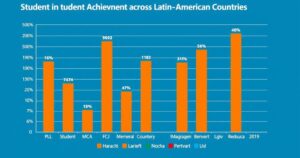Nigeria Inflation Rate Reaches Nearly 29-Year High Ahead of Data Revision

As of December, Nigeria’s inflation neared a 29-year high, reaching 34.8%, with forthcoming data revisions anticipated to alter this view. The upcoming adjustments in methodology could present a lower inflation figure by modifying the weight of food costs in the consumer price index. The central bank has responded to rising inflation with substantial interest rate hikes, forecasting a slower price increase in 2025.
Nigeria’s inflation rate surged to nearly a 29-year peak in December, with consumer prices rising by 34.8%, marginally up from 34.6% in November. This measurement differs slightly from the median estimate of 34.9% provided by three economists in a Bloomberg survey. The Nigerian Bureau of Statistics will soon release revised data that might indicate lower inflation figures as the methodology for calculating inflation is set to be updated.
The inflation spike in Nigeria has been significantly driven by increased transportation costs. Moreover, while food inflation experienced a slight decline to 39.8% from 39.9% in November, core inflation, which excludes volatile food and energy prices, increased to 29.3%. In response to surging inflation, the Nigerian central bank’s monetary policy committee raised interest rates markedly, by 875 basis points, during the previous year, with expectations for a gradual easing in price growth in the coming year.
In conclusion, Nigeria’s inflation situation remains precarious, reaching a near-record high in December amidst impending methodological changes to how inflation is calculated. This revision may provide a more favorable outlook on inflation rates as the reliance on food costs is adjusted in the consumer price index. Market expectations include a potential easing of inflation rates later this year, contingent on upcoming central bank decisions.
Original Source: financialpost.com








